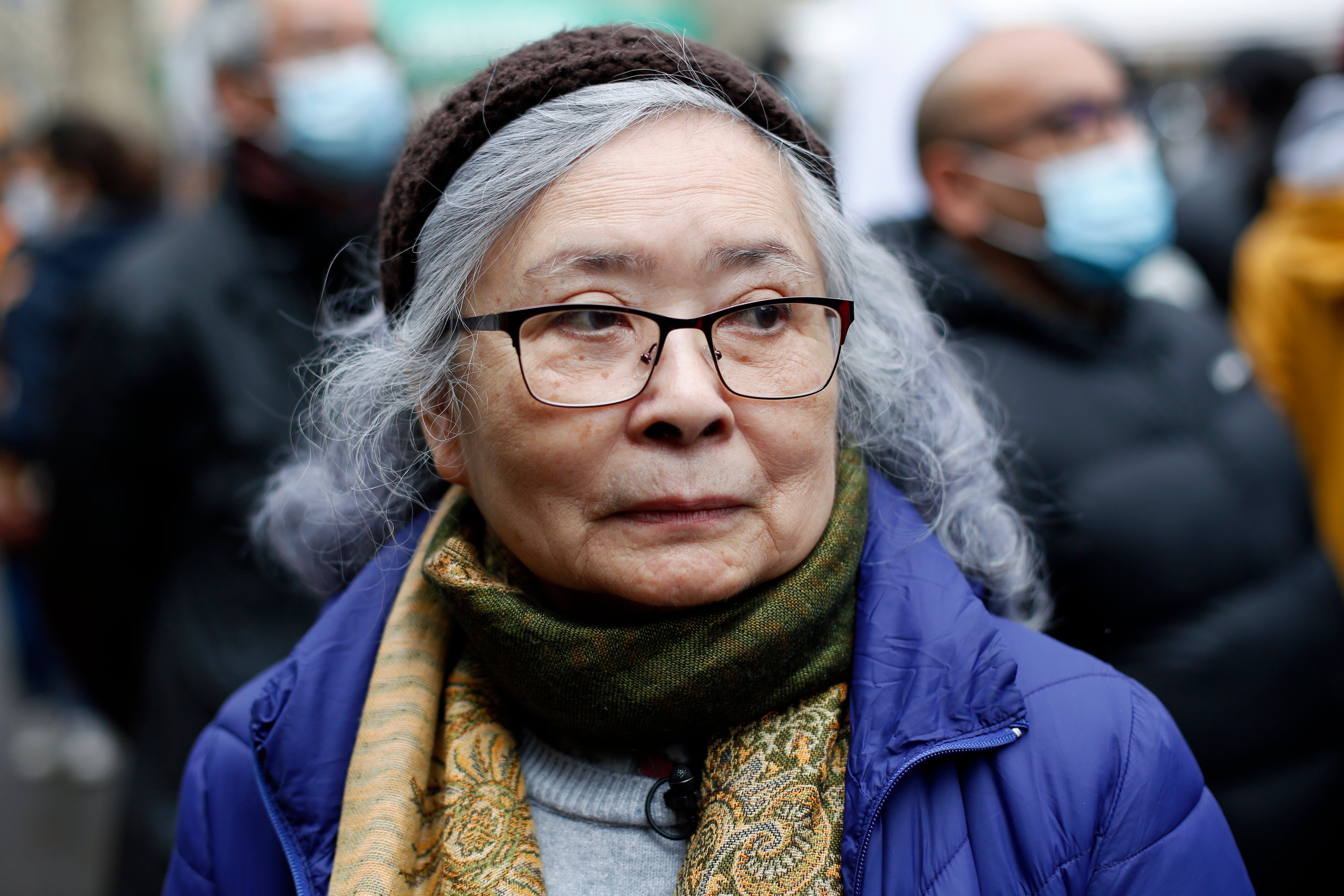Activists back French-Vietnamese woman's Agent Orange case
Activists have gathered in Paris to support people exposed to Agent Orange during the Vietnam War, after a French court examined the case of a French-Vietnamese woman who sued 14 companies that produced and sold the powerful defoliant

Your support helps us to tell the story
From reproductive rights to climate change to Big Tech, The Independent is on the ground when the story is developing. Whether it's investigating the financials of Elon Musk's pro-Trump PAC or producing our latest documentary, 'The A Word', which shines a light on the American women fighting for reproductive rights, we know how important it is to parse out the facts from the messaging.
At such a critical moment in US history, we need reporters on the ground. Your donation allows us to keep sending journalists to speak to both sides of the story.
The Independent is trusted by Americans across the entire political spectrum. And unlike many other quality news outlets, we choose not to lock Americans out of our reporting and analysis with paywalls. We believe quality journalism should be available to everyone, paid for by those who can afford it.
Your support makes all the difference.Activists gathered Saturday in Paris to support people exposed to Agent Orange during the Vietnam War, after a French court examined the case of a French-Vietnamese woman who sued 14 companies that produced and sold the powerful defoliant dioxin used by U.S. troops.
Tran To Nga, a 78-year-old former journalist described in a book how she breathed some Agent Orange in 1966, when she was a member of the Vietnamese Communists, or Viet Cong, that fought against South Vietnam and the United States.
“Because of that, I lost one child due to heart defects. I have two other daughters who were born with malformations. And my grandchildren, too,” she told The Associated Press.
She filed a lawsuit in 2014 in France against firms that produced and sold the Agent Orange, including U.S. multinational companies Dow Chemical and Monsanto, now owned by German giant Bayer.
Tran is seeking damages for multiple health problems, including cancer, and those of her children in legal proceedings that could be the first to provide compensation to a Vietnamese victim, if the French court rules in her favor, according to an alliance of nongovernmental organizations backing her case.
So far only military veterans from the U.S. and other countries involved in the war have won compensation. The justice system in France allows citizens to sue over events that took place abroad.
Backed by the NGO alliance named the Collectif Vietnam Dioxine, which called for Saturday’s gathering at Trocadero Plaza, Tran's legal action is aimed at gaining recognition for civilians harmed by Agent Orange and the damage the herbicide did to the environment.
U.S. forces used Agent Orange to defoliate Vietnamese jungles and to destroy Viet Cong crops during the war.
Between 1962 and 1971, the U.S. military sprayed roughly 11 million gallons of the chemical agent across large swaths of southern Vietnam. Dioxin stays in the soil and in the sediment at the bottom of lakes and rivers for generations. It can enter the food supply through the fat of fish and other animals.
Vietnam says as many as 4 million of its citizens were exposed to the herbicide and as many as 3 million have suffered illnesses from it, including the children of people who were exposed during the war.
“That’s where lies the crime, the tragedy because with Agent Orange, it doesn’t stop. It is passed on from one generation to the next,” Tran said.
Tran's case was heard on Monday at the court in Evry, a southern suburb of Paris.
Bayer argues any legal responsibility for Trans's claims should belong to the United States, saying in a statement that the Agent Orange was made “under the sole management of the U.S. government for exclusively military purposes.”
Tran’s lawyers argued that the U.S. government had not requisitioned the chemical but secured it from the companies through a bidding process.
The court's ruling is scheduled on May 10.